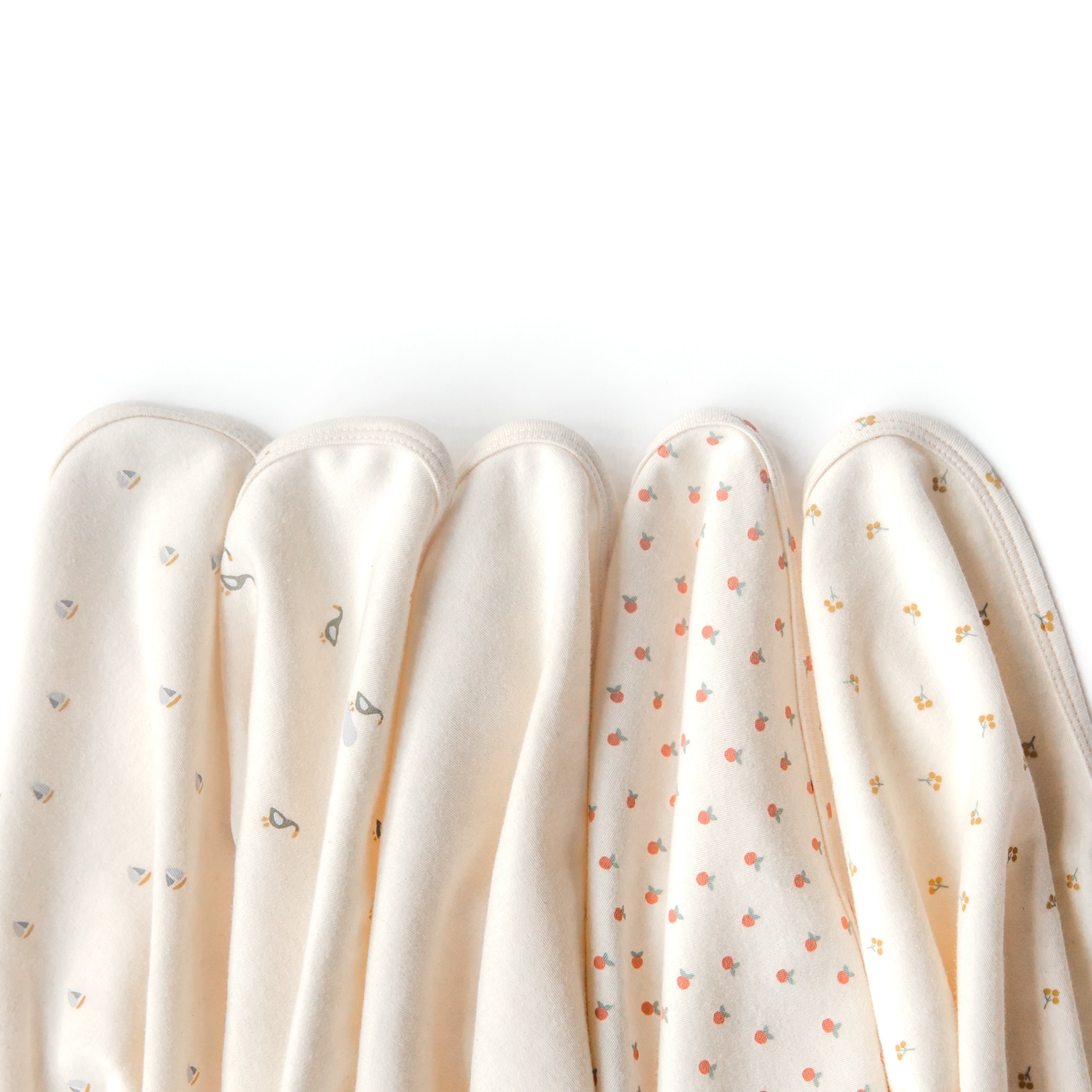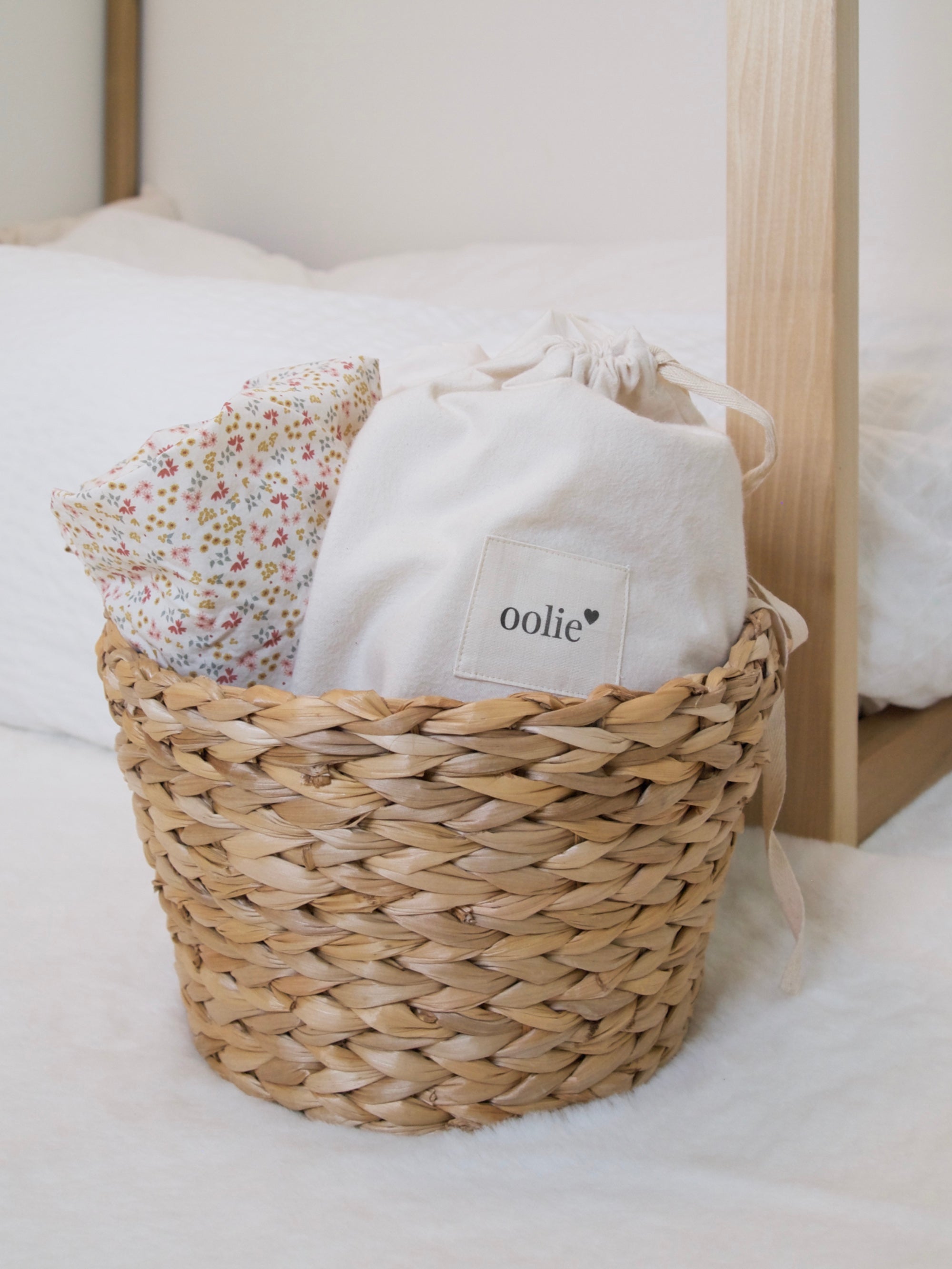Two years ago, we started Oolie with a mission:
To improve quality of life for families through comfortable, functional, and beautiful sleep solutions that are socially and ecologically responsible by design.
Organic was essential; a non-negotiable for us. But as we navigated our own organic certification process, we learned that there are a lot of misconceptions about what “organic” means.
Unfortunately, this is often fueled by companies who intentionally mislead customers with confusing language. These companies want to benefit from the feel-good aura of the term “organic,” even though their products are — often — not actually organic.
Here are the most common lies — and corresponding truths — we’ve seen around “organic” products.
Lie #1: “Organic” is a Meaningless Label
Some people think that anything made from “organic matter” can be labeled “organic.” So every cotton sheet or down-feathered pillow is “organic,” right?
Not quite. Yes, there is “organic matter,” of course, but in the US, the term “organic” as a label applied to consumer products has a specific and highly regulated meaning.
Truth #1: “Certified Organic” is Highly Meaningful
“Organic” on a consumer product means, at minimum, “no toxic herbicides or pesticides were used to product this product.”
Sounds good! But “certified organic” is so much better.
When a product is truly certified organic, you don’t have to trust the company’s own claims because an independent, audited, third-party certifier has physically verified that the products are, indeed, free of herbicides or pesticides.
In addition, “certified organic” may mean much more than simply “no pesticides,” depending on the specific certification. For example, all Oolie bedding is GOTS-certified, and the GOTS standard includes both environmental and social criteria. GOTS-certified products like ours are not just “organic,” but also free of exploitative labor and supply chain practices.
So what prevents a company from dishonestly slapping a “certified organic” logo on their packaging? Consequences. It is the certifying authorities’ jobs to enforce the rules, so any company that breaks the rules runs the risk of big fines and legal action.
Thanks to organic certifications, consumers can shop confidently.
Lie #2: “Organic” Labels are Marketing Gimmicks
Another myth is that “organic” is just a marketing gimmick, and that there is no significant difference between organic and conventionally grown cotton. However, this is far from the truth.
Truth #2: True Organic is Better for People and the Planet
Organic cotton is grown without the use of harmful pesticides, synthetic fertilizers, or genetically modified organisms (GMOs). This not only benefits the environment by reducing chemical pollution, but also ensures that the cotton fibers are free from harmful residues.
Without the chemically intensive treatments used to finish conventional cotton, organic cotton fabrics can maintain the integrity of the raw cotton fibers and, in the end, feel much softer on your skin.
Furthermore, organic cotton farming practices promote soil health and biodiversity, which helps to maintain the ecosystem and support wildlife. By choosing sheets made from organic cotton, consumers are supporting sustainable agriculture and contributing to a healthier planet.
Lie #3: Organic Products Are Expensive
Is an organic strawberry more expensive than a conventional, pesticide-treated one? Sure.
Are organic cotton sheets more expensive than conventional ones? In the short-term, yes.
While it is true that organic bedding may have a slightly higher price tag compared to conventional bedding, it is important to consider the long-term benefits and the overall value.
Truth #3: Certified Organic Products Are a Better Value
Organic bedding products are made with high-quality organic cotton or other sustainable materials that are carefully selected for their durability. Additionally, organic bedding manufacturers often use high-quality manufacturing processes to ensure the longevity of their products. With proper care, our organic bedding can last much longer than conventional bedding products.
But let’s also consider the “value” of living in line with our other personal values.
Yes, certified organic products can cost more in terms of the purchase price. But consider the web of life that we are part of, and what it means to pay for the things we buy. When I go to a massive, global chain store and buy something useful but inexpensive, how can that item possibly cost so little? Is it made with lesser materials? Is it made in a country without worker protection laws or standards? Was it made by someone who was exploited for their cheap labor? Yes, yes, yes, and yes (most likely).
With our GOTS and B Corp certifications, we verify our commitments to business practices that do not exploit or harm others — just to save a few bucks. And that’s invaluable.
Organic Products are the Better Choice
Choosing organic cotton sheets and bedding is not just a trend; it is a conscious decision to support sustainable agriculture, protect the environment, prioritize health and well-being, and enjoy comfortable and stylish bedding. So let's debunk these myths and embrace organic bedding as a crucial step towards a more sustainable and eco-friendly lifestyle.
Photo by Joshua Reddekopp on Unsplash


